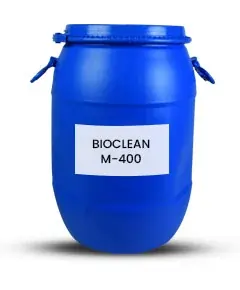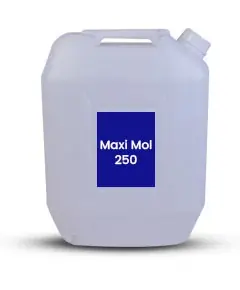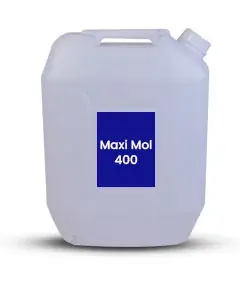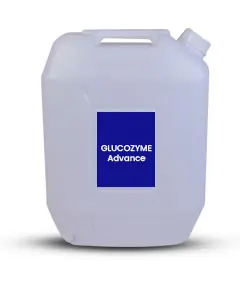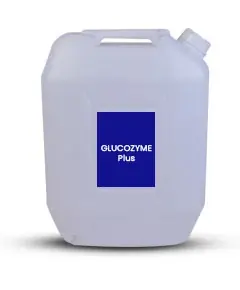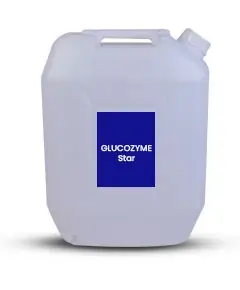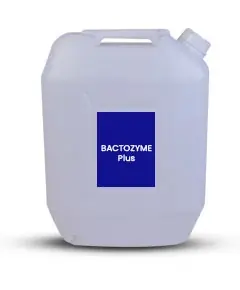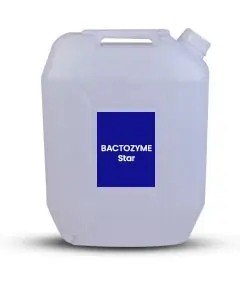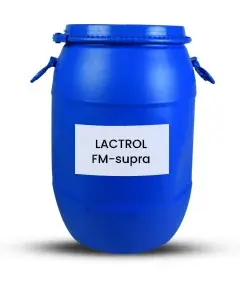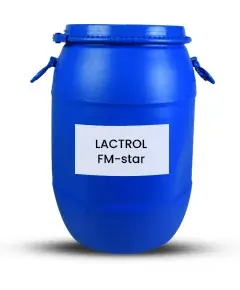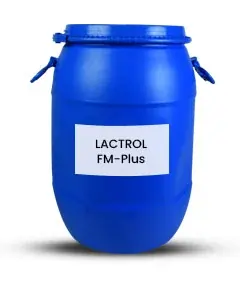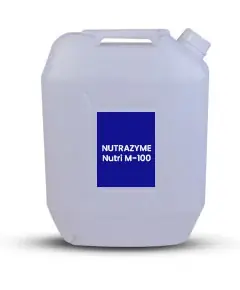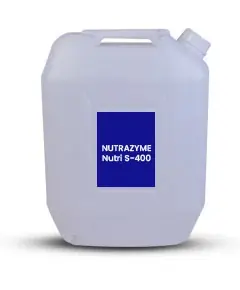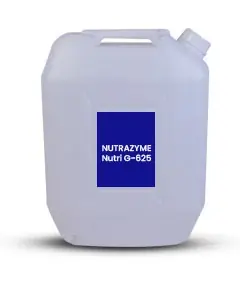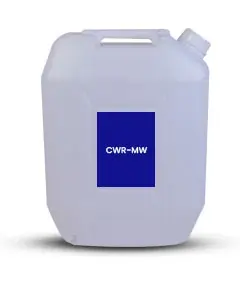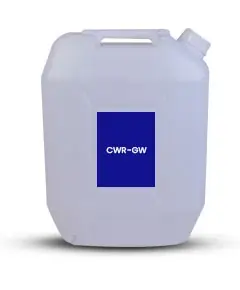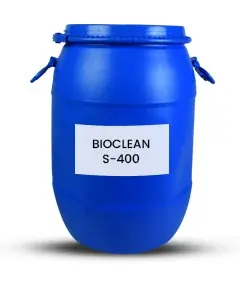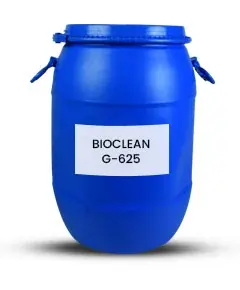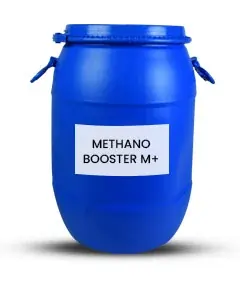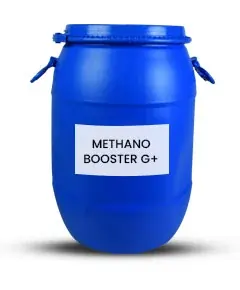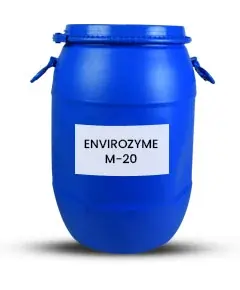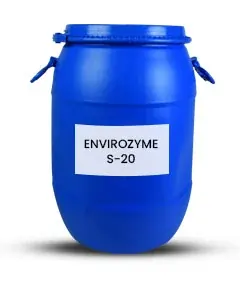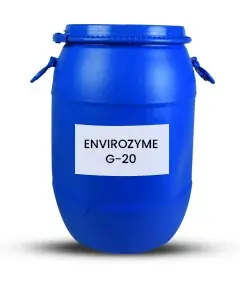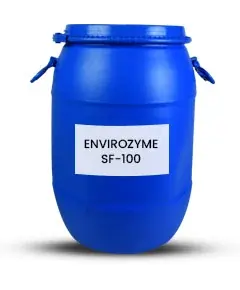Distillery department is a dynamic hub dedicated to the manufacturing and distribution of enzymes tailored specifically for distilleries. The enzymes developed and manufactured in the state-of-the-art facilities are aimed at reducing microbial contamination in molasses to increase alcohol yield, help in molasses storage, precipitation of ethanol, recycle condensate water and treat effluent waste.
MOL BOOSTER
Enzymatic formulation for Molasses storage tank
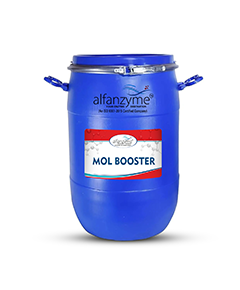
Molasses has sugar content of around 40-50%, with a Brix above 80-85. During storage, there is a rapid reduction in total reducing sugars (TRS) and a rise in acidity (VA). Microscopic observation reveals that the microbial population is very high with the growth of several bacteria. Apart from microbial contamination, millard reactions occur at high rates, affecting the quality of molasses. Alfanzyme Life Science introduces MOL BOOSTER which is a customized cocktail of enzymes, used to take control over the growth of other unwanted microorganisms and thus retains the quality of molasses during the storage.
BENEFITS:
1. Maintains TRS during molasses storage for a period of 6-12 months.
2. Reduction in volatile acid content by 40-50%.
3. Increases Total Reducing Sugar percentage by min 1-2%
GLUCOZYME ADVANCE
Enzymatic formulation for Molasses fermentation
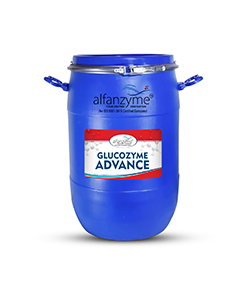
Glucozyme advance is a synergistic blend of enzymes, microbial & bio-nutrients. Molasses contains starch (carbohydrate), which can’t be extracted economically at the sugar plant. Starch contains the major share of unfermentable sugar (UFS). UFS can be hydrolyzed by different kind of amylases. Starch itself is nothing but a long chain of individual glucose molecules which must be broken apart or hydrolyzed with enzymes. Molasses can be hydrolyzed by the enzymes and converted into simple sugar, which yeast can take further for alcohol conversion.
Glucozyme advance is a blend of enzymes and has three major mode of action:
- Hydrolyzes a part of unfermentable sugar in the molasses and convert it to reducing sugar. This reducing sugarcan be taken up by yeast for fermentation.
- Protease side activity for Glucozyme Advance liberates FAAN (Free Alfa Amino- Nitrogen) by hydrolyzing proteins present in molasses, which works as a food for yeast.
- Protease hydrolyzes the cell wall of bacteria, which is made of proteins. Thus leading to elimination of contamination.
BENEFITS:
1. Increases fermentation efficiency by 2-3%
2. Converts unfermentable sugars to fermentable sugars
2. Decrease in volatile acid contamination
3. Increase the yield/recovery by 8-10 lit/ MT of molasses
BACTOZYME
Enzymatic solution for microbial contamination
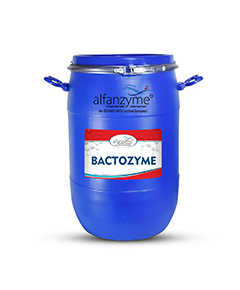
During molasses fermentation, growth of lactic acid, acetic acid, slime forming bacteria and thermophilic bacteria is observed. These bacteria consume the sugar contents and produce organic acid, thus increasing the organic acidity in the process that results in the decrease in ethanol yield. Bactozyme is an enzymatic formulation that helps control the growth of these bacteria, thus reducing the microbial contamination in the distillery process and controlling the problems caused by microbial contamination.
BENEFITS:
1.Reduction in total volatile acids (TVA) and microbial contamination
2. Reduction in high foaming and scum formation
3. Increase in ethanol yield
FM-SUPRA
Enzymatic solution for microbial contamination
Growth of lactic acid bacteria is a major challenge in distillery process as it consumes the sugar contents and produce organic acid, thus resulting in the decrease in ethanol yield. Lactrol is an enzymatic formulation that helps control the growth of lactic acid bacteria, thus reducing the microbial contamination in the distillery process.
BENEFITS:
1.Reduction in total volatile acids (TVA) and microbial contamination
2. Increase in ethanol yield
BEACON YEAST
High alcohol tolerance dry yeast specialised for molasses distillery
This product is a specifically selected high alcohol yeast, resistant to high temperature, alcohol and acid, and can be widely applied in the molasses distillery. It is well suited for use in batch and continuous fermentation of molasses.
BENEFITS:
1. Higher alcohol in wash
2. Resistant to high temp and dissolved solids
3. High growth rate of living yeast cells
4. Tolerates higher alcohol and sugar concentration
ALFA-DEFOAMER
Highly efficient ester-based Defoamer formulation
The presence of foaming due to various nature of input solids and operating conditions, possess severe problems in fermentation.
BENEFITS:
1. Controls foam without adversely affecting film appearance
2. Easily dispersible in aqueous system. Environmental friendly.
3. No negative effect of scaling in distillation
SYRUP ENHANCER
Bio-Syrup preservation
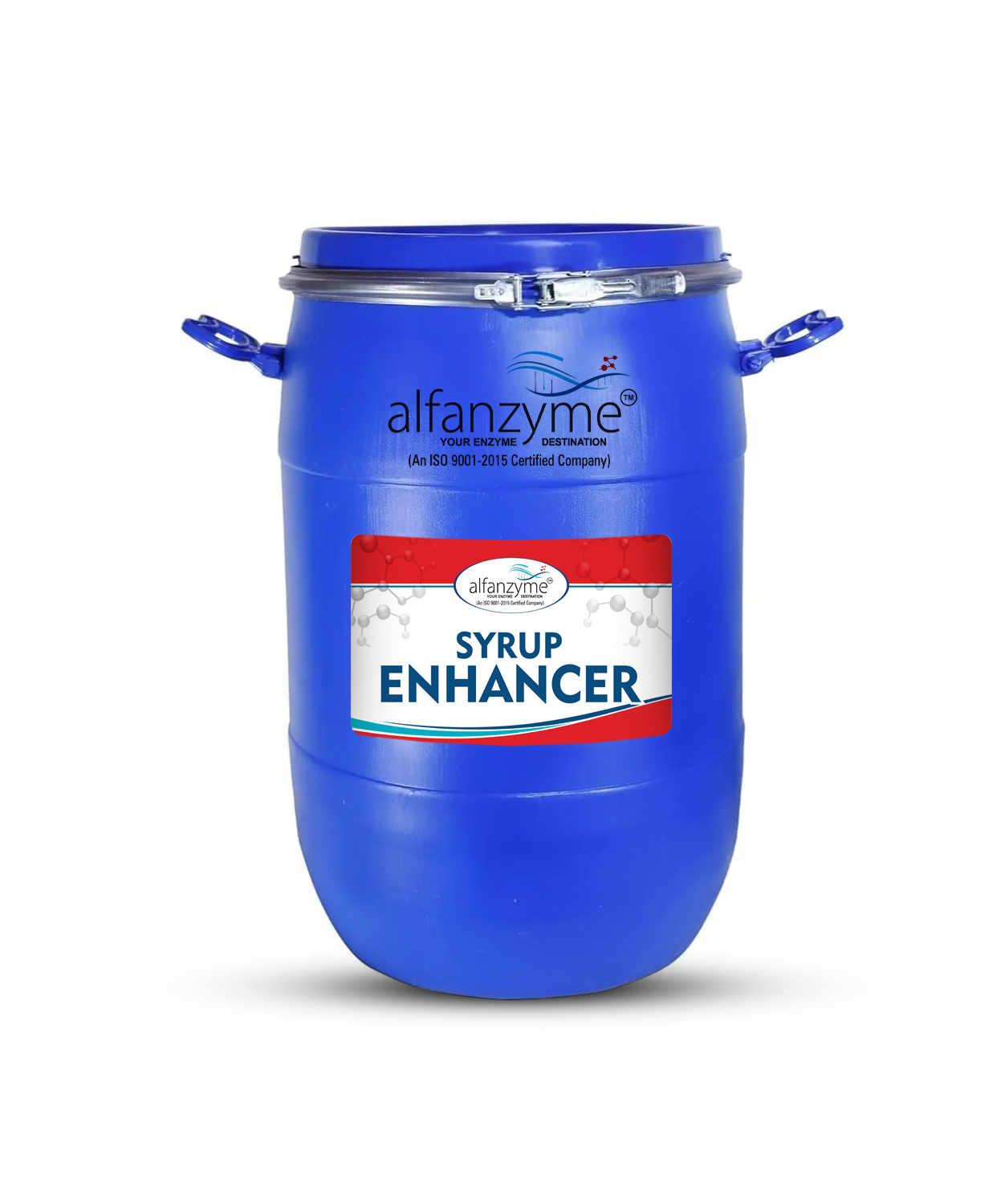
Chances of contamination is very high during transfer of syrup to distilleries resulting in reduction of TRS level in the biosyrup. It also increases the volatile acid content in the sample. Syrup enhancer is a customized enzyme which helps to maintain the pH level in biosyrup during transfer into distillation unit.
BENEFITS:
1. Maintains Total Residual Sugars (TRS) and pH level during syrup transfer
2. Reduction in volatile acid content
3. Reduces microbial contamination
NUTRAZYME
100% Replacement of Inorganic Fertilizers like Urea, DAP & MgSO₄
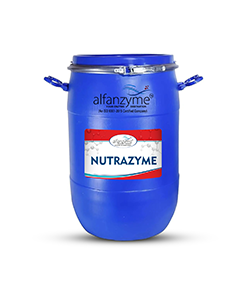
This novel product contains cocktail of enzyme and is an excellent source of micro and macro nutrients to the microbes by autolysis and degradation of old biomass and existing complex phosphate source in the raw material. For example, phosphate is very essential for synthesis of anabolism process. The existing raw material contains phosphates in complex forms, thus rendering it unusable by yeast cells. Thus, DAP is externally added for the yeast propagation in all fermentation and culture vessels. We have developed this special enzyme to degrade the complex phosphate into simple molecular form for efficient yeast propagation.
BENEFITS:
1. 100% replacement of inorganic fertilizers like Urea, DAP and Magnesium Sulphate.
2. Increase yeast cell multiplication by complex phosphate degradation.
3. Reduces overall process cost.
CJ-50
Recycle of distillery condensate water in fermentation process
ALFA CJ-50 is a specially formulated cocktail of enzyme & enzymatic salts used for recycling of condensate water in molasses and grain based distillery.
Condensate water is mineral free and has a Total Dissolved Solids (TDS) level of near zero. The water should never be used for human consumption as it may contain heavy metals from contact with the cooling coils and other HVAC equipment. The lack of minerals in the water also makes it corrosive to most metals, especially steel and iron. The water’s low-mineral quality and lack of sanitizers (chlorine, chloramines, etc.) makes it excellent for the purposes of irrigation. In the residential sector, this water should be used similar to harvested rainwater.
Alfa CJ-50 has some protease enzymes which helps to break down the cell wall of Gram positive and Gram negative bacteria and increase the pH along with FAAN contents in fermentation system essential for Yeast growth. Alfa CJ-50 will ultimately break down these organic acids into organic carbon resulting in a reduction of volatile acids in condensate water.
BENEFITS:
1. Recycle 50% condensate water in fermentation process
2. Helps to removes the bad odour and colour in condensate water
3. Cost effective reduction in consumption of fresh water
4. Reduces the TVA in Fermented wash
5. Helps plant achieve Zero Liquid Discharge (ZLD)
BIOCLEAN
METHANO BOOSTER
An Enzyme Formulation for Increasing Methane Gas Production
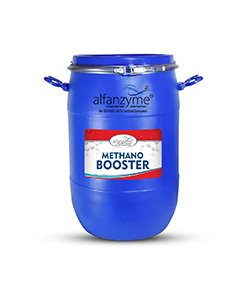
The amount of municipal, industrial & agricultural wastes that are released everyday causes serious environmental problems. Water pollution by solid waste disposal is also becoming a severe problem. To protect the environment land filling and ocean dumping are discouraged. Because of its high content of organic matter, sewage sludge is used as substrate for anaerobic digestion to recover biogas. Anaerobic digestion of organic wastes is an effective technology for both treatment and energy conversion.
Microbial methane formation is strictly an anaerobic process which is carried out by a metabolically unique group of organism generally known as the methanogenic bacteria. The group comprises genera Methanococcus, Methanobacterium, Methanosarcina, Methanococcoides, Methanogenium and Methanoplanus. These bacteria are widely distributed in anaerobic habitat including the rumen of ruminant animals, the termite gut, landfills, stagnant ponds, anaerobic digesters and rice paddies.
The temperature for growth may range between mesophilic temperature to thermophilic temperature. The methanogenes are highly interactive ecologically and depend heavily on the metabolism of other bacteria to produce the substrate needed for their survival. Fermentative bacteria provide these substrates by conversion of complex macromolecules such as cellulose or protein into 4 principle methanogeneic substrates namely hydrogen, CO2, acetic acid, formic acid.
BENEFITS:
1. Significant improvement in methanogenic bacterial population.
2. Decrease in the production of major green house gases and other pollutants.
3. Reduction in BOD and COD levels with increase in pH.
ENVIROZYME
Enzyme blended culture for effluent treatment
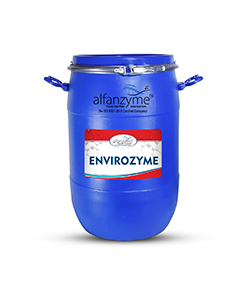
Effluent treatment has assumed great significance in today’s context, where protecting the environment is a prime concern. The main objective is to treat the effluent before it is discharged so that the environment is not polluted. Effluent treatment generally refers to treatment of suspended and floating material, treatment of biodegradable organics and the elimination of pathogenic organisms. It is a liquid containing a concentrated source of free flowing hydrolytic enzymes and more than ten strains of natural bacteria that are genetically capable of producing enzymes in wastewater treatment systems under aerobic and anaerobic conditions.
BENEFITS:
1. Reduction in COD and BOD levels
2. Reduces sludge volume & viscosity
3. Reduces odor & color of effluent or waste water
- Other Products

